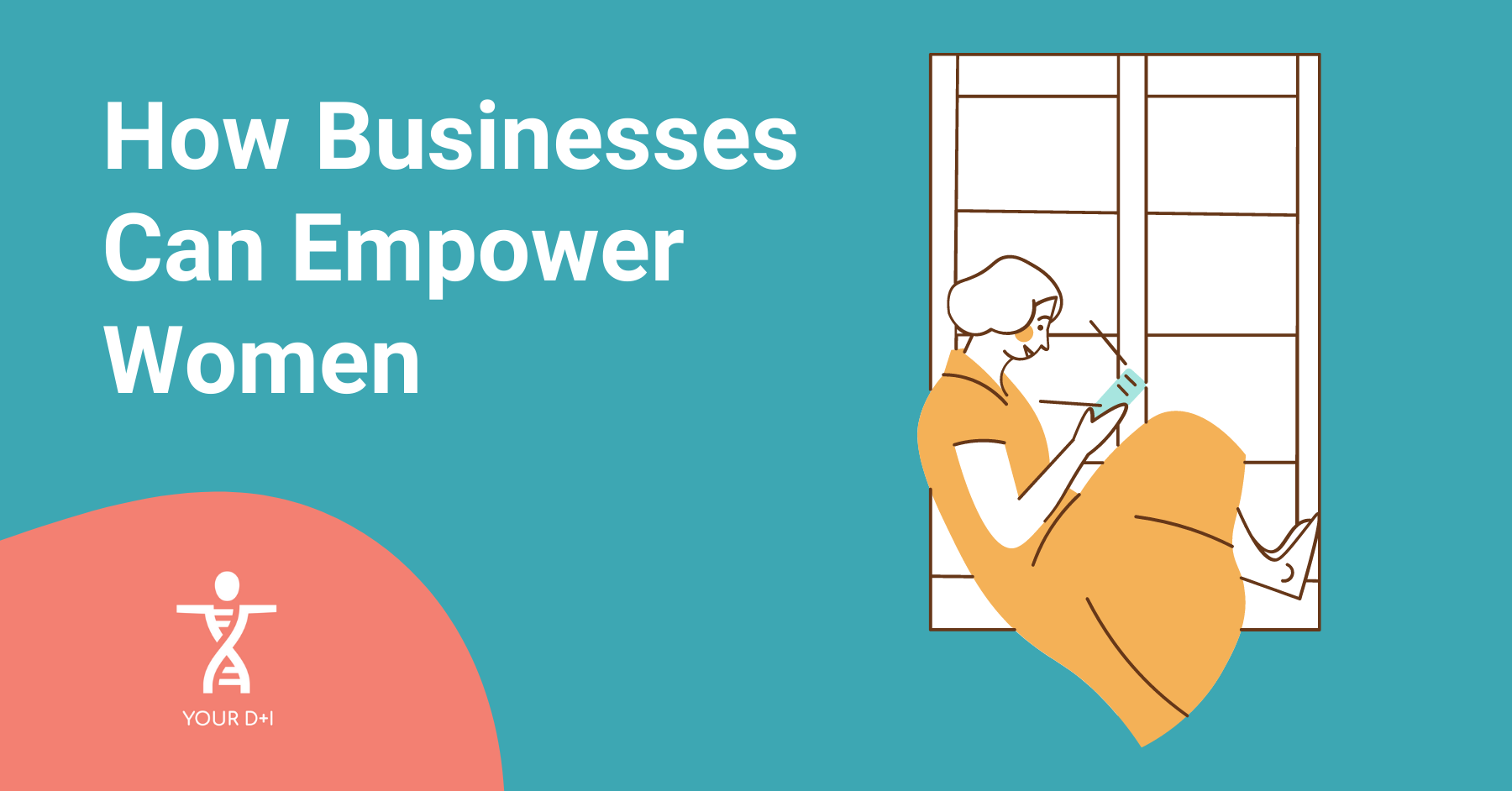How Businesses Can Empower Women
The pandemic has affected the world in so many ways. Despite being physically forced apart, however, people have still managed to rally together and help others. We’ve seen support for causes like Black Lives Matter, climate change activism and, with the Sarah Everard vigil, women’s rights.
With the world slowly starting to return to ‘normal’, it is just as important (if not more) to support marginalised groups and those being discriminated against. Ensuring we empower women is essential for both the personal development of women but also for businesses’ development.
Why empower women in the workplace?
You may ask, why is female empowerment so important? Why do we need to bother with it? The short answer is that female empowerment equips women with the tools necessary for them to have control over their own lives. This benefits the world too as women are able to reach their full potential. This means they can contribute their skills to the workforce, help fuel economies and create more stable labour markets. Not to mention that having women in boardrooms provides organisations with a broader range of ideas and thinking.
The even shorter answer is that it is the right thing to do! Whilst empowerment cannot fix gender bias as a whole, it is a solid step in the right direction. So let’s take a look at some ways your business can empower its female employees and other women.
Amplify women’s voices
Ensuring women’s voices are heard in meetings and that they receive credit for their ideas is one of the most important ways to empower women. Too often do men take credit for women’s ideas after they are ignored when pitching the same point. This is most common in sectors where the power dynamic is inherently male-focused and women are underrepresented, such as the tech industry.
To avoid these situations, other employees must ensure women have a real platform and dedicated airtime. In group discussion settings, there are methods everyone can use to prevent taking ideas from women. For example, when mentioning someone else’s idea (including if you have a new idea based on it), credit them. For example, you can say ‘I agree with the comment that Jane made about…’ Ensuring that everyone’s voice is amplified is a team effort and requires always having each other’s backs even if you don’t agree with everything that is said.
A great example of amplifying women’s voices comes from the 2008 White House cabinet. When Obama was in office, almost two thirds of his top office aids were men, leaving female staff fighting to be heard. However, they developed a strategy of amplifying each other’s voices to ensure that women were heard. If this strategy can successfully empower women in the US Government, why not try it in your workplace?
Create equal pay
Equal pay is one of the biggest issues within gender inequality, even since the Equal Pay Act in 1970. This Act stated that all workers have the right to receive equal compensation for work of equal value. As of 2020, however, the UN found that women still earn around 84% of what men do. This number is even lower for women of colour, immigrant women and women with children, meaning the gender pay gap is truly still an issue.
Creating equal wages within your business is not only a legal requirement but also comes with benefits. Equal pay encourages women to feel more valued and that their work is just as important as that of their male co-workers. This can also motivate female employees, providing your business with an increase in efficiency and productivity.
To ensure that pay is completely equal, employers will need to ensure that men and women within the same roles are completing the same amount of work. Women tend to be held to a higher standard than men, which can mean pay incorrectly appears equal. This is because women may complete twice as much work for the same wage in order to prove themselves.
Encourage networking
Networking is a hugely important asset for anyone want to create long-term relationships and climb the ladder. For many women, however, networking can be essential for survival and progression within the labour market. Creating a network in which women can interact with other women can create an important, supportive environment. This can allow women to feel safe to discuss things like gender issues and equality within their workplace.
Professional networks can also allow women to share of ideas and advice on how to progress within their career. It can also help women find suitable mentors in their fields, who can help them improve their skills. Networking is also an opportunity for male allies to recommend qualified female colleagues or connections for roles. This means more women may apply when you advertise roles, providing a larger and more diverse set of candidates for you to choose from.
Utilise mentorship schemes
Like networking, mentorship schemes allow women to build on skills needed for career progression. Helping women build skills and experience through a female mentor can increase the confidence of both mentee and mentor. Providing women with female mentors can allow them to relate more than they would a male mentor. Female mentors can be more effective role models to women as their journeys are more likely to be similar.
In addition to creating role models, mentorship schemes can also help women understand their worth. Talking about their aspirations with other women can help remove the biases that were taught to many women since they were children, such as the idea that women being powerful and assertive in the workplace are angry and difficult.
Many companies in the UK offer programmes and mentorship schemes that help women progress within the creative industry. Some examples are Code First Girls, Animated Women UK, SheSays and Chicks in Advertising. By getting your female employees involved in schemes like this, you can help them feel empowered and build skills.
Stand up against discrimination
Standing up against discrimination is probably the most important way to empower women in the workplace. Women shouldn’t have to worry about being discriminated against at work but it is also important they know it will be reported if something does happen. What would you do if you heard an outrightly sexist comment or notice a woman is having to work harder than a man in the same role? The answer to this question should always be to stand up against this discrimination.
If women is discriminated against in the workplace, being stood up for will help them feel valued and respected. While it cannot erase the issue itself, the way discrimination is handled in a workplace speaks volumes. When you do stand up against discrimination, ensure it is in a safe and respectful way. If you need it, make sure you also have the support of management.
All employees should have an understanding of how to tackle inappropriate language and discrimination. This includes both talking things out as well as following the correct procedures (and knowing when to do which). To learn more about handling workplace conflict and inappropriate language, check out our It’s Just Banter workshop.
How will you help?
This blog should have helped you understand what female empowerment is as well as why it is so important. Remember that empowering women not only helps them, but it also benefits your business and even the economy. You may feel that women within your workplace are being discriminated against, whether it is conscious or not. If so, try applying some of these tips to empower the women within your workplace!
These ideas can be used to empower not only women but also other marginalised groups who may feel discriminated against within the labour market. If you want to learn more about female empowerment or any other Diversity + Inclusion topics, do not hesitate to get in touch or check out some of our other blogs!


